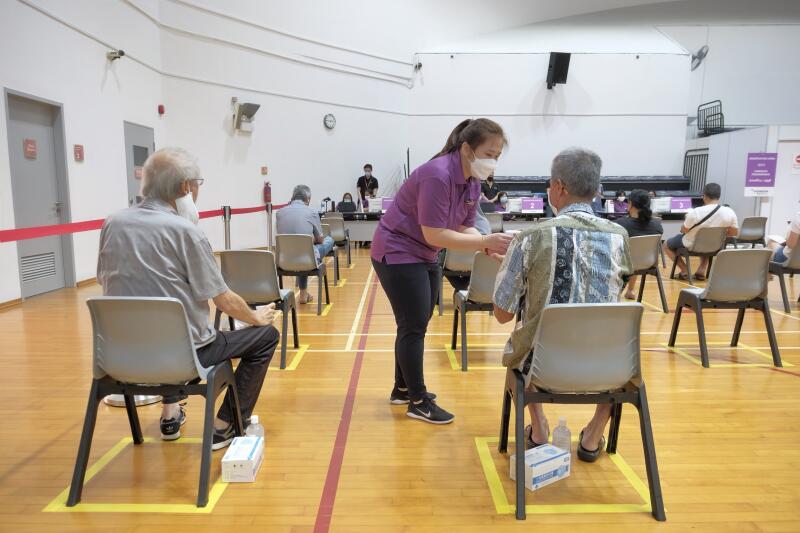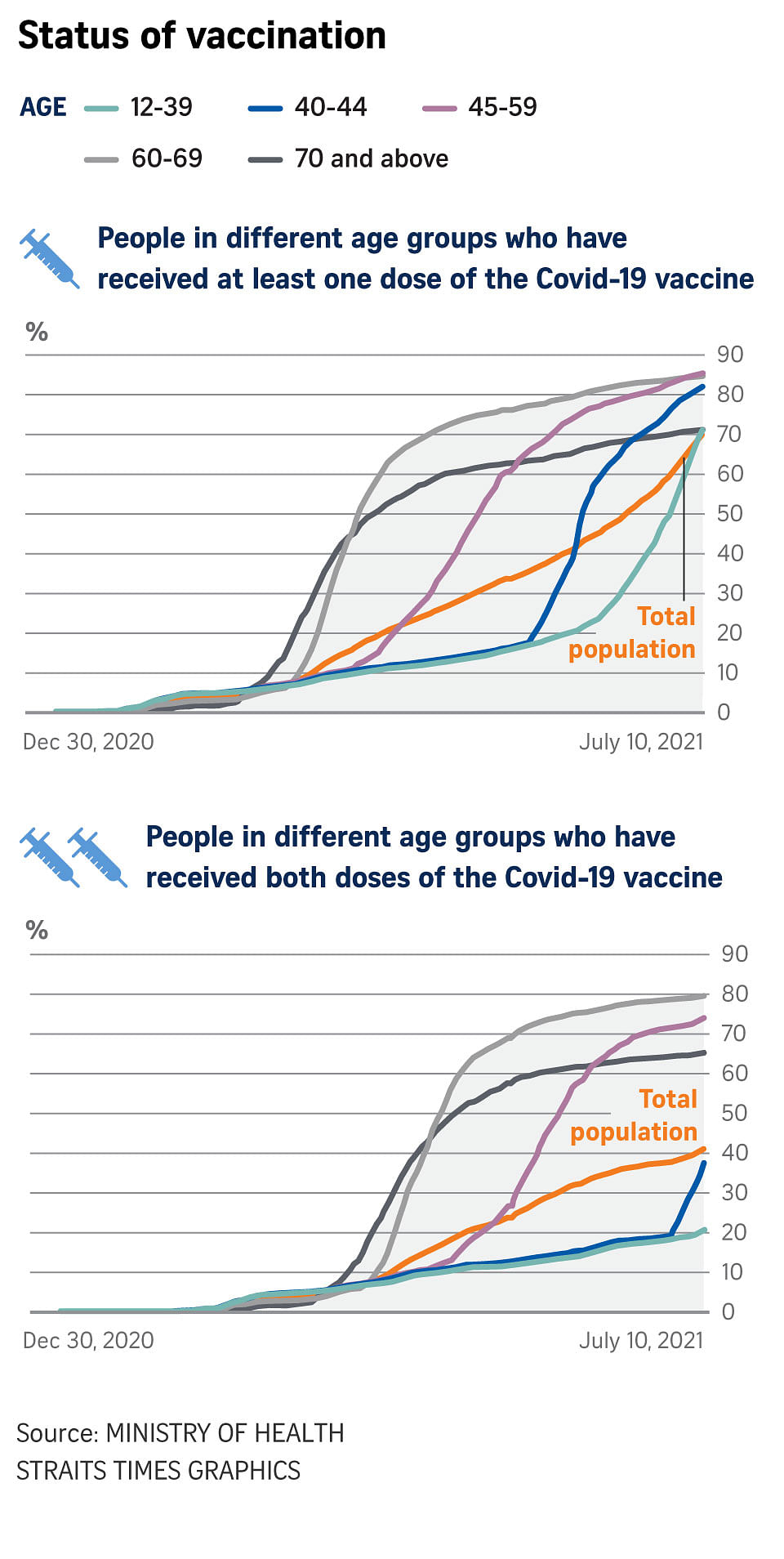Seniors not keen on Covid-19 vaccine tend to have less education, social contact: S'pore study
Sign up now: Get ST's newsletters delivered to your inbox

The most common reason cited for not wanting to get vaccinated was fear of negative side effects from the vaccine.
PHOTO: ST FILE
SINGAPORE - Seniors who are less educated and have less social contact are more likely to be holding off on the Covid-19 vaccine. This was one of the findings from a recent study by the Singapore Management University's Centre for Research on Successful Ageing (Rosa).
The study was based on data from the Singapore Life Panel, a monthly survey of Singaporeans aged 56 to 75. About 7,230 people responded to the population representative survey last month, when the data for the Rosa study was taken.
At the point of the study, 16.26 per cent of those aged 71 to 75 had not received their first dose of the vaccine. This was higher than the other age groups studied.
Of the entire survey population, those who had only primary school education or no education at all were most likely to not have been vaccinated. In this group, 16.12 per cent had not taken the jab.
About 19 per cent of those living in one-to-three-room Housing Board flats had yet to get their shot, compared with 13.42 per cent in four- or five-room flats and executive condominiums, and 12.01 per cent in private property.
Those who did not intend to get vaccinated had an average of 8.63 close contacts.
This was lower than those who were fully vaccinated, who had an average of 12.38 close contacts.
About 14.6 per cent of those who did not plan to get jabbed lived alone, compared with 7.05 per cent of those fully vaccinated.
The most common reason cited for not wanting to get vaccinated was fear of negative side effects from the vaccine, followed by not believing in any form of vaccination at all.
The study also found that those who did not wish to get vaccinated were the least trusting of all sources of information on Covid-19. However, they were more likely to trust family members over the Government or media sources.
This is in contrast to those fully vaccinated, who were more likely to trust local news and the Government than their own family for such information.
Noting this, the researchers suggested that the authorities attempt to encourage seniors who are unwilling to get vaccinated by reaching out to their younger relatives.

"This is especially so given the importance of social support in encouraging positive health behaviour and the fact that those who did not wish to vaccinate were more likely to be less socially integrated," said the study's lead author Micah Tan.
Mr Tan, a research fellow at Rosa, added that government initiatives should focus on assuring individuals that the vaccines are effective and do not pose a significant risk to their health.
He said: "We should try to understand the fears of older adults... and support them by reassuring and guiding them through the vaccination process."


